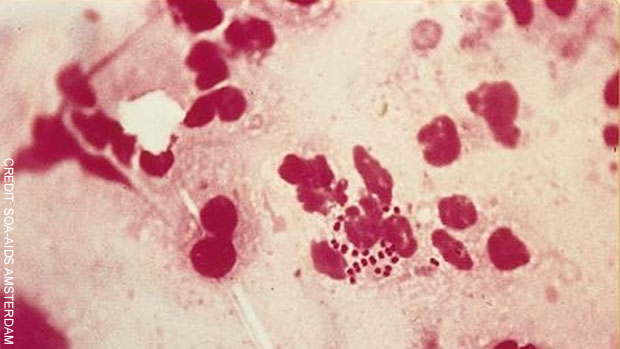How to spot a fake STI test
New figures show thousands of counterfeit kits that can give incorrect results being sold online

A free daily email with the biggest news stories of the day – and the best features from TheWeek.com
You are now subscribed
Your newsletter sign-up was successful
About 2,000 fake STI tests have been seized in the UK in the past year, the medicines watchdog has revealed.
And a total of 12,000 fake tests had been confiscated by authorities during the past four years, according to data compiled from the Medicines and Healthcare products Regulatory Agency (MHRA) - leading to concerns that thousands of people may have been given incorrect diagnoses.
The at-home test devices for sexually transmitted diseases including HIV and chlamydia “can show negative results when the person is positive, resulting in an individual believing they are infection-free and unknowingly spreading an infection to others”, The Guardian reports.
The Week
Escape your echo chamber. Get the facts behind the news, plus analysis from multiple perspectives.

Sign up for The Week's Free Newsletters
From our morning news briefing to a weekly Good News Newsletter, get the best of The Week delivered directly to your inbox.
From our morning news briefing to a weekly Good News Newsletter, get the best of The Week delivered directly to your inbox.
As the i news site notes, the news comes just months after health charities demanded “urgent action” on STIs, as levels of gonorrhoea reach their highest levels in more than 40 years while health leaders warn of sexual health and HIV services being at “breaking point”.
How to spot a fake
The fake STI tests warning is part of the #FakeMeds campaign by the MHRA, which has also found that one in ten people in the UK have bought fake medical products online in the last year. The campaign was launched after research showed that more than half of all medical products sold online are either substandard or counterfeit.
Private screening service Your Sexual Health reports that one of the easiest ways to spot a fake test is the packaging. Fake tests will will often “arrive in a plain zip lock bag or sometimes even a sandwich bag”, and “there may also be a number of elements from various different companies or a lack of branding completely”, says the company’s site.
A free daily email with the biggest news stories of the day – and the best features from TheWeek.com
In addition, fake tests often have “difficult-to-follow instructions that look like they’ve been printed on a home printer in black and white”.
People searching for online tests should also check the validity of the website on which the kits are being sold, and read reviews by other customers. If there are only a small number of reviews, or an overwhelming number of negative ones, caution should be exercised.
What’s behind the rise of fake tests?
Mahendra Patel, an honorary visiting professor in pharmacy for the University of Bradford, says some young people in particular could be buying the testing kits online “because of the price,they want to keep it private and there is the convenience of going on the internet, searching for them quickly and buying it on their phones”.
But “it is important the kits are approved and regulated in this country”, he warns.
“Your doctor or community pharmacist can provide professional advice on whether you need to be seen by the doctor straight away if you have other symptoms, or other medication your are taking, or you can visit your local sexual health clinic,” Patel adds.
An MHRA spokesperson said: “Always purchase medical devices from a registered pharmacy or reputable retail outlet. If you have any concerns about your health, speak to a doctor or healthcare professional.”
-
 How to Get to Heaven from Belfast: a ‘highly entertaining ride’
How to Get to Heaven from Belfast: a ‘highly entertaining ride’The Week Recommends Mystery-comedy from the creator of Derry Girls should be ‘your new binge-watch’
-
 The 8 best TV shows of the 1960s
The 8 best TV shows of the 1960sThe standout shows of this decade take viewers from outer space to the Wild West
-
 Microdramas are booming
Microdramas are boomingUnder the radar Scroll to watch a whole movie